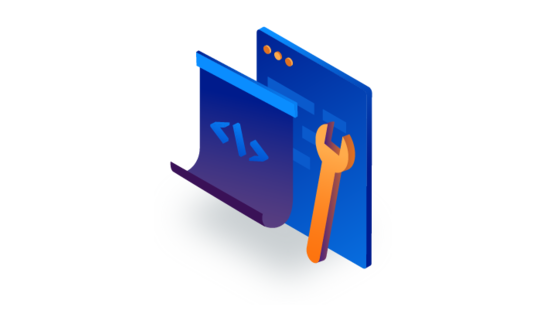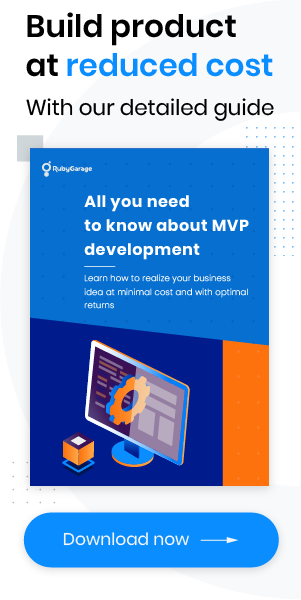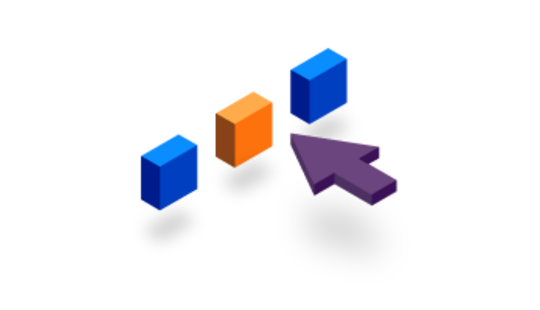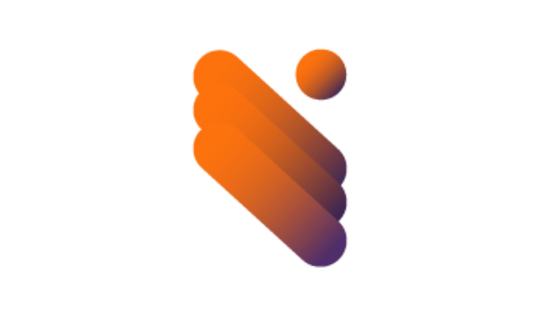-
Product Management
Software Testing
Technology Consulting
-
Multi-Vendor Marketplace
Online StoreCreate an online store with unique design and features at minimal cost using our MarketAge solutionCustom MarketplaceGet a unique, scalable, and cost-effective online marketplace with minimum time to marketTelemedicine SoftwareGet a cost-efficient, HIPAA-compliant telemedicine solution tailored to your facility's requirementsChat AppGet a customizable chat solution to connect users across multiple apps and platformsCustom Booking SystemImprove your business operations and expand to new markets with our appointment booking solutionVideo ConferencingAdjust our video conferencing solution for your business needsFor EnterpriseScale, automate, and improve business processes in your enterprise with our custom software solutionsFor StartupsTurn your startup ideas into viable, value-driven, and commercially successful software solutions -
-
- Case Studies
- Blog
The Best Programming Language for Startups: Everything You Need to Know
Building a successful technology startup is difficult. Startuppers need to not only come up with a viable startup idea but also secure funding and, naturally, implement a market-ready software product.
To minimize risk, business owners don’t rush into developing a full-fledged web or mobile application that might end up failing. Instead, startuppers usually validate their business idea by building a minimum viable product (MVP). With this comes the challenge of selecting the right programming language and framework. The stakes are high, as in most cases the final software product is based on the MVP.
In this article, we’ll go through the best programming languages for startups along with their frameworks to help you decide which to use during development.
Framework selection criteria for building an MVP
Selecting the relevant programming language and framework for an MVP is essential. In most cases, the codebase of the MVP becomes the basis of the future full-fledged application. If you decide to build your MVP and the final product with different technologies, you’ll bear extra expenses and it’s likely to slow down the release.
What criteria should you take into account to choose the right programming language and framework?
#1 Programming language characteristics
The first thing to decide upon is the programming language. There are dozens of programming languages, and if you aren’t a tech person, you’re likely to be puzzled by the choice.
So it’s important to have basic knowledge about programming languages and the differences between them. Roughly speaking, there are two main types of programming languages:
- Compiled (such as C# and Java), in which the code written by developers is turned into executable machine code before runtime. Compiled languages are statically typed, which means the type of a variable has to be provided before compilation.
- Interpreted (such as Ruby and Python), in which the code written by developers is translated into executable machine code at runtime. Interpreted languages are dynamic, which means type checking happens on the fly.
Compiled languages show better performance than their interpreted counterparts. But if you think that the case is closed and a compiled programming language is simply the best option for your MVP, you should read this article to the end. Performance is an important advantage, but the difference in performance between compiled and interpreted languages only comes into play if your application grows popular and has to handle high loads.
Though slower, interpreted programming languages have an important ace up their sleeve: they’re a lot more flexible and help developers be more productive. For this reason, the vast majority of startup applications are built with interpreted programming languages.
#2 Domain
Programming languages and frameworks are all different; each solves specific problems effectively. You should therefore take the business purpose of your project into account. Some technologies are tailored to building high-performance banking software, while others are perfect for developing AI-powered applications. The wrong language and framework might lead to extra time and money to build an application.
Using a spade to hammer a nail makes no sense; you need a hammer. The same logic works for programming languages and frameworks.
#3 Time to market
Startups are about speed. Congratulations if you’ve come up with a brilliant business idea, but you might not be alone. Potential competitors might outpace you. Startuppers know well that the faster they launch a software product, the stronger the competitive advantage they’ll get.
That’s why time to market is probably the most important criterion for business owners. To make a reasonable decision, you should have a clear understanding of what aspects impact the time to market:
Out-of-the-box solutions
Every framework provides specific features to facilitate software development. However, a framework alone isn’t enough to build a fully functional web application. Implementing a complicated feature from scratch can be a daunting task for programmers, and it can take a lot of time and money. To speed up the process, developers can use out-of-the-box solutions. That’s why you should pay attention to the number of out-of-the-box tools available for a framework.
Community
The community is the cornerstone of any programming language and framework. The bigger and more professional it is, the better applications programmers can build. A mature community translates into better code, more reliable applications, and higher revenue for business owners. A strong community creates, maintains, and upgrades frameworks, tools, and out-of-the-box solutions. It goes without saying that a mature community encourages knowledge sharing and helps developers build software.
Developer availability
Software doesn’t build itself. Developers build it.
When you decide on a programming language and framework, you should consider developer availability. This may sound irrelevant, as you’re likely to need only a single full-stack developer to create your MVP. Yet it’s reasonable to look ahead and think of further development of your software product.
If there aren’t enough skilled programmers in your area, developing a full-fledged application can take too long and be rather expensive. There is, however, a way out: you can go for outsourcing, hiring freelancers or a remote team. Outsourcing can help business owners not only roll out quality software products but also save money (compare the average salaries in the USA and Ukraine).
| Language | USA | Ukraine |
|---|---|---|
| Ruby | $124,336 | $24,000 |
| Python | $123,628 | $22,800 |
| PHP | $89,480 | $18,000 |
| JavaScript | $112,137 | $22,800 |
| Scala | $123,140 | $33,000 |
Five best programming languages for startups and their frameworks
Now that you know the major criteria, let’s go over the most popular programming languages and frameworks for building startup applications.
Ruby / Ruby on Rails
When it comes to technology startups, Ruby and its Ruby on Rails framework are among the most popular choices. Ruby on Rails powers thousands of startup applications, and this technology is perfectly suited for developing MVPs. Let’s take a look at how Ruby on Rails performs based on the criteria we’ve mentioned above.
Programming language characteristics
The Ruby programming language was created in 1994 by Japanese programmer Yukihiro “Matz” Matsumoto. Ruby is an interpreted language with dynamic typing and is known for its pure object-oriented nature.
The philosophy of Ruby is focused on developer happiness. Matz wanted to build a tool that would make software development enjoyable and fun. For this reason, Ruby has an extremely intuitive and developer-friendly syntax that’s easy to read and understand. It simplifies coding and significantly speeds up development.
Domain
Ruby is a general-purpose programming language that can be used to create all kinds of web applications, from simple websites to sophisticated enterprise software. The Ruby on Rails framework helps Ruby developers be productive and deliver secure and functional web applications quickly. This makes it an optimal choice for startups. To prove the point, some of the most successful unicorns (including Airbnb, Shopify, and GitHub) were built with Ruby on Rails.
The combination of Ruby and its Ruby on Rails framework, however, isn’t the ultimate weapon. Being an interpreted programming language, Ruby shows quite moderate runtime performance. But there’s no need to worry: this makes no difference for small and medium-sized applications (and keep in mind that Ruby on Rails is perfectly scalable). Performance limitations can become an issue only for large-scale applications that need to handle gigantic loads.
Time to market
Ruby is certainly a great choice for turning your startup idea into a viable application as quickly as possible. Over the years, the Ruby community has created thousands of open-source libraries (gems) that help developers easily implement features. Instead of writing code from scratch or using third-party (paid!) solutions, programmers can simply use suitable gems. What’s more, Ruby gems are compatible not only with Ruby on Rails but with other Ruby frameworks. So if you opt for a different Ruby framework, you can still use the same gems to build your MVP.
The vibrant Ruby community keeps improving existing gems and creating new ones. The Ruby community is active and proficient, so it’s no wonder Ruby developers are well paid. Yet you know what you’re paying for: strong expertise and the ability to build quality applications.
Bottom line: If your goal is to roll out a functional and secure web application in the shortest time possible, Ruby on Rails is the right choice. Rails will help you get the best bang for your buck in terms of functionality.

Python / Django
Now let’s take a brief look at the combination of the Python programming language and its famed Django framework.
Programming language characteristics
Python was created back in 1991 by Guido van Rossum. Like Ruby, it’s an interpreted language with dynamic typing. The design philosophy behind Python emphasizes code readability. Python code is intuitive and easy to understand, and it largely resembles Ruby code. Python can be used to implement both small and large-scale applications. In terms of runtime performance, it’s a bit on the slow side, but this doesn’t make any difference for startup applications.
Domain
Though Python is a general-purpose programming language, it’s best known for its application in the spheres of machine learning and artificial intelligence. Python is the dominant tool for implementing machine learning algorithms. Chatbots, predictive analytics applications, recommendation systems, and image recognition software − you can use Python to build them all.
Python isn’t limited to artificial intelligence and machine learning, though. The combination of Python and its Django framework powers a lot of successful applications, such as the popular social network Instagram and the Bitbucket version control repository.
Time to market
Django is the most frequently used Python web framework. It follows the model–view–template (MVT) architectural pattern. Django’s primary purpose is to encourage rapid development of secure and scalable web applications, so it’s a great choice for building MVPs. There are thousands of open-source modules in the Python ecosystem, and developers can use them to effortlessly extend the functionality of their applications.
Python has a large and well-established community. According to recent statistics by GitHub, Python ranks third by number of repositories. Django, in turn, is supported by over 1,500 contributors on GitHub, so you can be sure it’s a secure and up-to-date web development tool.
Bottom line: Django is a Python framework, which means you can use the full power of the Python programming language for your business. If your application is going to use machine learning algorithms, Django and Python will help you get it up and running.
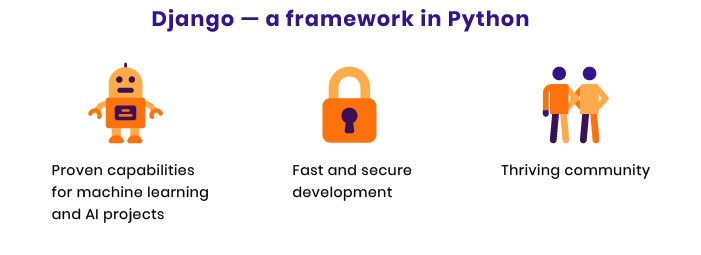
PHP / Laravel
As usual, the shortlist of potential programming languages for building an MVP includes PHP and one of its multiple frameworks, in this case Laravel. Let’s take a look at how PHP and Laravel compare to other technologies.
Programming language characteristics
Rasmus Lerdorf, the creator of PHP, initially developed a set of scripts for tracking visits to his online CV. Later, to extend the functionality of those scripts, he rewrote the code and created a new programming language, PHP. PHP is an interpreted and dynamically typed general-purpose programming language that’s well suited for web development and can be embedded in HTML.
Unlike many other programming languages, PHP wasn’t developed from a specific concept but was the result of gradual growth. This has resulted in multiple inconsistencies in syntax. Moreover, PHP lacked an official specification until 2014.
Domain
PHP is among the most commonly used programming languages in the world, powering millions of websites. Its popularity is due to the fact that powerful content management systems such as WordPress and Joomla are written in PHP. This makes PHP a great choice for building versatile web applications, from small landing pages and online stores to multi-billion-dollar social networks like Facebook.
Laravel is an open-source PHP framework built using components of Symfony 2, another popular framework. Laravel is distributed under the MIT license, so you can use it for free. It was designed to extend the functionality of existing PHP frameworks, encourages rapid application development, and leans toward syntactic sugar.
Time to market
The Laravel framework provides a rich set of out-of-the-box frameworks, tools, and packages to help programmers build fully operational web applications, microservices, and APIs. There are also lots of open-source PHP libraries that can help developers speed up their work, but not all of them are compatible with the Laravel framework.
At the same time, Laravel is a relatively new technology, so it has a smaller community than, say, its fellow Symfony framework. PHP in general has a huge community, but the low barrier to entry attracts many novices with poor coding skills. This means that lots of open-source solutions are of low quality and shouldn’t be used in production.
Bottom line: If you want to avoid problems with hiring developers, then PHP may be the most suitable technology for your project. It’s time-tested and has a huge community, and the powerful Laravel framework enables you to smoothly build a fully functional web application.

Node.js / Meteor
Programming language characteristics
Node.js was created in 2009 to implement the JavaScript everywhere paradigm. It isn’t a programming language but rather a runtime environment that executes JavaScript outside of a browser. Thanks to Node.js, programmers can use JavaScript both on the client and on the server. Node.js is based on Google’s V8 JavaScript engine and has an event-driven architecture that enables asynchronous input/output. This makes applications built with Node.js high-performance and scalable.
Domain
The architecture of Node.js makes it a great choice for building real-time web applications such as live chats, messaging apps, online games, and stock exchange software. Meteor, an open-source full-stack web framework tailored to rapid prototyping, brings the power of Node.js to startups. A lot of startups (such as Rocket.Chat and Tap To Speak) select Meteor to build high-performance applications with Node.js.
Time to market
Under the hood, Meteor contains a rich JavaScript stack to minimize the amount of code developers need to write. Moreover, this framework allows programmers to use the many out-of-the-box solutions available through the Node.js package manager (known as npm). But that’s not the most amazing feature of Meteor: it allows you to build cross-platform applications. In other words, developers can use the same code for web, mobile (iOS and Android), and desktop applications.
Meteor has a rapidly growing community. As of March 2019, the number of GitHub contributors to Meteor (400) was almost twice the number contributing to Express.js, which is considered a “standard” Node.js framework. Yet Meteor is far less popular than top web frameworks like Ruby on Rails and Django, so finding expert Node.js/Meteor developers can be challenging.
Bottom line: If you want to build a real-time messaging or streaming web application, Node.js is a suitable technology. The Meteor framework, in turn, will help you speed up development and enable you to write cross-platform code.

Scala / Play
So far, we’ve reviewed only interpreted programming languages, but that doesn’t mean you can’t use compiled languages to build an MVP. It’s possible with the Scala programming language and its Play framework.
Programming language characteristics
Scala was designed in 2004 with the purpose of fixing some drawbacks of Java. It’s an object-oriented compiled programming language with a static type system and strong functional programming capabilities. Scala code is compiled into Java and runs on the Java Virtual Machine, so Scala is seamlessly compatible with Java. But Scala has a more concise syntax than Java, so developers can write code faster.
Domain
Since Scala is a compiled programming language, it shows terrific runtime speed, enabling developers to create reliable, high-performance, and scalable web applications. Initially written in Ruby on Rails, a major part of the Twitter backend was rewritten in Scala to meet growing performance requirements.
Play is a popular open-source Scala framework that follows the model–view–controller (MVC) architectural pattern. The Play framework enables developers to build highly scalable applications with minimal resource consumption (CPU, RAM, etc.). Play can be used not only to create applications with Scala but also with Java. The popular online education platform Coursera uses Scala and Play in its technology stack.
Time to market
Since Play has native support for both Scala and Java, developers can use a multitude of open-source Java libraries (the majority are compatible with Play). To enhance developer productivity, the Play framework follows the convention over configuration paradigm (just like Ruby on Rails).
The Scala/Play community is active and professional, as it’s mostly experienced Java developers who switch to these technologies. You should, however, keep in mind that Scala and Play are less popular than more mainstream programming languages and frameworks, so finding expert developers for building your MVP can be difficult.
Bottom line: If runtime performance is the priority for your startup application, you should opt for Scala and its Play framework. These technologies will help you develop a software product capable of handling high traffic without difficulties.

A comparison table of 5 best frameworks for MVP development
| Framework | Ruby on Rails | Django | Laravel | Meteor | Play |
|---|---|---|---|---|---|
| Programming language | Ruby | Python | PHP | JavaScript (Node.js runtime) | Scala |
| Architectural pattern | MVC | MVT | MVC | Publish-Susbcribe | MVC |
| License | MIT | BSD | MIT | MIT | Apache 2 |
| Unfair advantage | Fast time to market | Easy integration of machine learning models | Time-proven technology | JavaScript both on the frontend and backend | Unmatched performance |
| Number of live websites (March 2019) | 380,574 | 73,463 | 104,027 | 16,734 | 1,197 |
| Pros | Time-efficient, many opens-source gems, strong and active community | Cost-effective, encourages rapid development, focused on security, large tool set | Rich PHP ecosystem, ample documentation, eloquent ORM | Cross-platform development, reactive frontend rendering, lightspeed prototyping | Top performance, stable operation on production, support for both Scala and Java |
| Cons | Slow runtime speed, lack of flexibility | Slow runtime speed, excessively monolithic architecture, RegEx is used in URL routing models | Relatively small community, extending classes can be tricky for inexperienced developers | Immature tool, compatible only with MongoDB | Steep learning curve, stable operation on production |
Making a choice
As you can see, all the programming languages and frameworks we’ve reviewed have their strong and weak points. To make the right choice, you need to select a framework according to the requirements of your project. And even though an MVP needs just basic functionality, you should keep in mind that you’ll need to scale it and turn it into a market-ready web application in no time.
If you can’t make up your mind and need expert advice, drop us a line and our team will help you quickly build an MVP to validate your startup idea.



